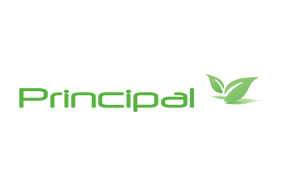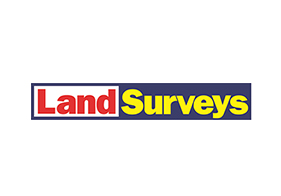The web hosting service provider you choose for your website will have a big impact on your business. It’s what dictates the accessibility of your web content, its responsiveness, security, scalability, uptime, and so on. This means you will have to spend a lot of time looking for a web host to get the best services.
When you search for web hosting companies online, you will get bombarded by many results, all claiming to offer the best services. This becomes challenging to narrow down the right web hosting service.
Having been in the web design space for over two decades, we know what an ideal web host is supposed to be like. Therefore, in this article, we share tips that you can follow when choosing a web host.
What is Web Hosting?
Web hosting services provide the technologies that help your website visitors seamlessly view and interact with your website. As such, you must get it right when choosing a hosting service. Failure to get it right will only lead to serious implications.
This type of service is offered by web hosting companies. They ensure your website is always running without failure and its contents are safe from perpetrators. You can now see why getting the right web host is important.
Web hosting is a competitive field. Therefore, a lot of service providers exist. While this presents a challenge, it’s also an opportunity for you to pick the right web host because you are not limited to a certain choice. The kicker is there are a lot of reasons why you should choose the right web host.
Why Choosing The Right Web Host Matters
Let us use a scenario to illustrate the importance of choosing the right web hosting company.
Consider a case where you need a new website for your business, either by designing it yourself or contacting an experienced web design company.
You use the recommended tips for choosing the right web design agency and pay a premium for the perfect website. Now, the most experienced and professional web designers will help you choose the right hosting service based on your website.
But if they don’t, it will be upon you to make the decision. So, how do you do it?
For one, if you choose the wrong hosting provider, you risk several things, including;
- Slow page load times: Poorly optimized servers or overcrowded shared hosting environments can cause delays in delivering web pages to users.
- Data privacy concerns: Low-quality providers may have inadequate security measures, putting your data at risk of breaches or unauthorized access.
- Limited scalability: Some providers may not offer the flexibility to upgrade your hosting plan or infrastructure as your traffic grows.
- Frequent downtimes: Poor server maintenance, unreliable hardware, or insufficient resources can interrupt your website’s availability.
The list is endless. Why does this happen? The quality of the hosting architecture of the hosting provider. A host with poor infrastructure will have outdated hardware, weak network connectivity, or insufficient redundancy measures.
How do you avoid all this and more?
You choose the right hosting provider. Notice that we are using the word right instead of best. This is because the best is relative. After all, what works for one website might not work for yours. So, next up, we will share tips to find the right hosting provider.
Tips For Choosing The Right Hosting Provider
Since you care about your business and your customers, consider following the following tips when looking for the right web host.
Understand Types of Web Hosting
Knowing and understanding the various types of web hosting will help you decide which one you want. Let’s briefly describe the common ones.
Virtual Private Server (VPS) Hosting
This hosting provides your website with a dedicated, private space on a shared server. You can decide to configure your VPS from scratch and obtain the required resources. It all depends on your hosting provider.
Note that some VPS hosting plans may not automatically include a control panel. This means you have to use the command line for server configuration and website setup. Therefore, this can be limiting if you want a straightforward dashboard for managing your hosting plans.
Ideal for: Growing businesses or websites with moderate traffic.
Example: An e-commerce store with hundreds of products that need better performance and security than shared hosting can offer but doesn’t require a dedicated server yet.
Shared hosting is the entry-level option for most website owners and is widely used due to its affordability. In this setup, a single server is shared among multiple users, which means hundreds (or even thousands) of websites are hosted on the same physical machine.
The quality of shared hosting can vary significantly depending on the hosting provider. Key factors that affect its performance include server management practices, the number of websites on a server, and the resources allocated to each account.
Ideal for: Small websites with low traffic and basic requirements.
Example: A personal blog, portfolio site, or small business website with minimal monthly visitors.
Managed WordPress Hosting
For this type of hosting, your provider handles the day-to-day maintenance tasks. This is because it is not just a plan but a service. So, they will provide a range of services, including software updates, backups, and security monitoring. Mostly, this service comes at a premium price.
Ideal for: WordPress-powered websites that require optimized performance and automated management.
Example: A professional blog, a news site, or a WordPress-based small business website where the owner prefers to focus on content instead of server maintenance.
Dedicated Hosting
As the name implies, dedicated server hosting is all about complete control and exclusivity. Here, a dedicated server provides exclusive access to a single server. It may also serve multiple servers. But basically, you have full control over its configuration. The hosting provider only houses it for you. As you’d expect, dedicated servers have a pretty high price tag.
Ideal for: Large-scale websites or businesses with high traffic and specific performance or security needs.
Example: A popular streaming platform, a large e-commerce website, or an enterprise-level website with custom configurations and sensitive data.
Cloud Hosting
Cloud hosting refers to distributed Virtual Private Servers (VPS). For this form of hosting, your virtual server is hosted on interconnected computers instead of a single computer.
Candidly, cloud hosting isn’t quite beginner-friendly. It is an excellent choice if you need flexible resource allocation and have the experience. But if you have simpler needs, it may be best to go with other options that align better with your requirements.
Ideal for: Scalable websites or applications with variable traffic patterns.
Example: A SaaS platform, an online store during seasonal sales, or a high-traffic website that experiences unpredictable spikes in traffic.
Identify Your Priorities
What type of website do you want to host? This question will help you know what your priorities are. If you want to host a portfolio website with minimal web visits, you might not mind the minimal downtimes experienced in shared hosting plans.
However, SaaS products that are used by thousands of people require dedicated or cloud hosting services for guaranteed support and uninterrupted performance.
Let’s explore some of the priorities that would influence your decision.
-
Reliability and uptime
Are you looking for 24/hr uptime and support? Most cheap plans do not have dedicated support, and if they do, they’re unreliable. Still, you should read online reviews for each provider before taking the plunge.
You need to choose a hosting provider that can guarantee a minimum uptime of 99.9% with a proven track record of meeting that provision. Uptime ensures that your website is always accessible to visitors and that your data is safe.
-
Speed and performance
Website performance and speed affect user experience and search engine optimisation. As such, you must choose a hosting service that prioritises fast load times, as this gives your website a competitive edge.
You also want to think about the scalability and flexibility of the web hosting plans you are offered. Confirming that they can handle future growth and accommodate traffic fluctuations without considerably affecting performance is important.
-
Technical support
This is even more critical if you have no technical knowledge. Your business website needs to be up and running at all times.
This is important because situations may occur requiring immediate response. Given this, make sure you prioritise hosting providers that offer multiple support channels or 24/7 support to ensure swift assistance whenever you need it.
-
Security and backups
Another essential factor to consider is the security measures the hosting provider has to protect your data and website. Cybercrime is at an all-time high.
Therefore, you must only use providers offering regular malware scanning, firewalls, and SSL certificates to secure sensitive information. Also, confirm If they offer automated backups to retrieve your website in case of data loss or breaches.
Choose The Right Web Hosting Service Provider
The number of hosting providers is huge and it keeps growing. Therefore, you can be assured that you won’t struggle to find the right fit for you. However, you might fall for the marketing hype and choose the wrong provider if you are not careful. To avoid this, you need to perform due diligence.
Here are two things to consider when choosing the provider;
1. Available hosting plans
In most cases, web hosting providers price their services in tiers and offer either subscription or licensing payment options.
Some will have base and premium tiers differentiated by the available features and the price. For instance, a base tier can have limited support, while the premium tier will have a dedicated customer relations manager.
Still, you will find that the plans are either paid for every month or as a one off licensing fee that you won’t have to pay for every month.
The decision here depends on you and what you feel is most favourable based on your needs. That means there are pros and cons to picking either type of plan.
2. Your budget
Like most financial decisions, the hosting service you choose should be dedicated to your budget. Different companies price their services at various prices based on several things.
For instance, top providers might price their products high because they have established a client base. On the contrary, emerging hosting providers might have discounted prices to convince you.
However, be cautious since cheap, as they say, is expensive. Essentially, just because a service is cheap doesn’t mean it’s the best. Imagine paying for an affordable service and losing all your data because you wanted a bargain.
Also, there is the issue of hidden costs. A plan might be listed as costing $4.99/month, but they don’t indicate that you will have to pay $20.00 running costs every month. To avoid this, review the provider’s terms and conditions to ensure no blind spots.
Generally, consider the overall value and affordability of the plan before making a decision.
Bottom Line
Considering the points highlighted in this article will help you in choosing a hosting provider that helps your business website thrive. This provider must guarantee fast loading times, uninterrupted accessibility, and robust security measures for your website. In other words, these are non-negotiables because they play a huge role in determining the performance of your website.
If you need affordable website designs or web hosting services, we can provide these to you. Kindly reach out to us to discuss your specific needs. We are ready to take your digital presence to the next level!



























